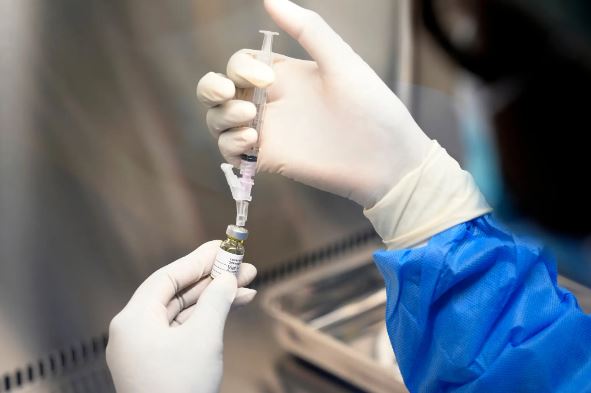Gilead Sciences announced a plan to allow six generic pharmaceutical companies in Asia and North Africa to manufacture and sell its groundbreaking drug, lenacapavir, at a significantly lower price. Lenacapavir, a twice-yearly injection, provides near-total protection from H.I.V. infection, and this agreement aims to expand access to the drug in 120 countries, including all of those with the highest H.I.V. rates, primarily in sub-Saharan Africa. Gilead will not charge the generic manufacturers for the licenses.
The decision comes just weeks after clinical trials demonstrated the effectiveness of lenacapavir. Gilead’s initiative is part of a broader strategy to ensure rapid and widespread access to a medication that could play a significant role in ending the decades-long H.I.V. pandemic. However, the agreement notably excludes most middle- and high-income countries, such as Brazil, China, and Russia, which account for about 20% of new H.I.V. infections. In these countries, Gilead plans to sell its branded version of lenacapavir at higher prices.
In the United States, where lenacapavir is already approved as an H.I.V. treatment, Gilead charges $42,250 per patient per year. The company has yet to disclose the price of lenacapavir when used as a preventative measure, known as pre-exposure prophylaxis (PrEP). The generic manufacturers — four companies in India, one in Pakistan, and one in Egypt — are expected to sell the drug for much less. Researchers at Liverpool University estimate that the drug could be produced for as little as $40 per patient annually if purchased in large quantities.
This licensing deal follows a model that major pharmaceutical companies have used for other life-saving drugs, such as treatments for cancer, hepatitis, Covid, and H.I.V. While these agreements guarantee low-cost access to the poorest nations, they exclude many middle-income countries by using World Bank income-per-capita figures to determine eligibility.
Dr. Othoman Mellouk, an expert in access to medicines with ITPC Global, based in Morocco, pointed out that wealthy individuals in middle-income countries might be able to afford the brand-name drug. However, the majority, especially vulnerable populations, cannot. These marginalized groups, such as migrants, sex workers, and injecting drug users, are most affected by H.I.V. and rely on public health systems for access to medications.
Melissa Barber of the Yale Collaboration for Regulatory Rigor, Integrity and Transparency expressed concern that the licensing deal excluded countries where swift access to lenacapavir could have a significant impact. Mitchell Warren, executive director of the H.I.V. prevention organization AVAC, criticized the omission of countries like Brazil, Mexico, and Argentina, which were part of the clinical trials that demonstrated the drug’s efficacy.
An unusual provision in the deal prevents generic manufacturers from exporting lenacapavir to countries not included in the agreement, meaning that Brazil’s public health system cannot buy the cheaper version from India. Although Brazil has the legal right to issue compulsory licenses, which override intellectual property protections, the generics makers would still be prohibited from selling to Brazil under the current deal. This has left Brazil, which has a large population of vulnerable H.I.V. patients, without access to an affordable version of the drug.
In response, some Brazilian researchers have indicated they may attempt to reverse-engineer lenacapavir and set up local production, but this would take time. Susana van der Ploeg, an intellectual property lawyer for a Brazilian AIDS organization, described the deal’s restrictions as “draconian.” She noted that Brazil’s public health system, which serves a significant portion of the population living below the poverty line, cannot afford the brand-name drug.
While Gilead says it is exploring tiered pricing to make lenacapavir more accessible in Latin America, many expect the final price to still be too high for public health systems. Meanwhile, global demand for a more effective PrEP product remains urgent. In 2023, there were 1.3 million new H.I.V. infections globally, underscoring the need for innovative solutions like lenacapavir.
Gilead plans to submit lenacapavir for regulatory approval by the end of the year, with the hope that six generics makers will begin competing for large orders by late 2027, potentially driving down prices. Until then, Gilead will supply the drug at a “no profit” price in the countries covered by the agreement. Health organizations like the Global Fund and the U.S. President’s Emergency Plan for AIDS Relief are expected to be major buyers.

